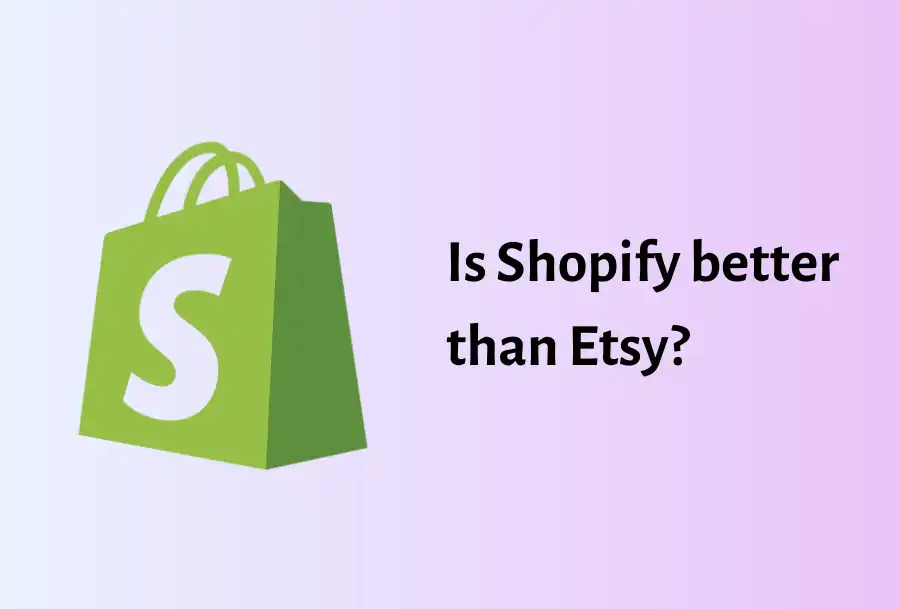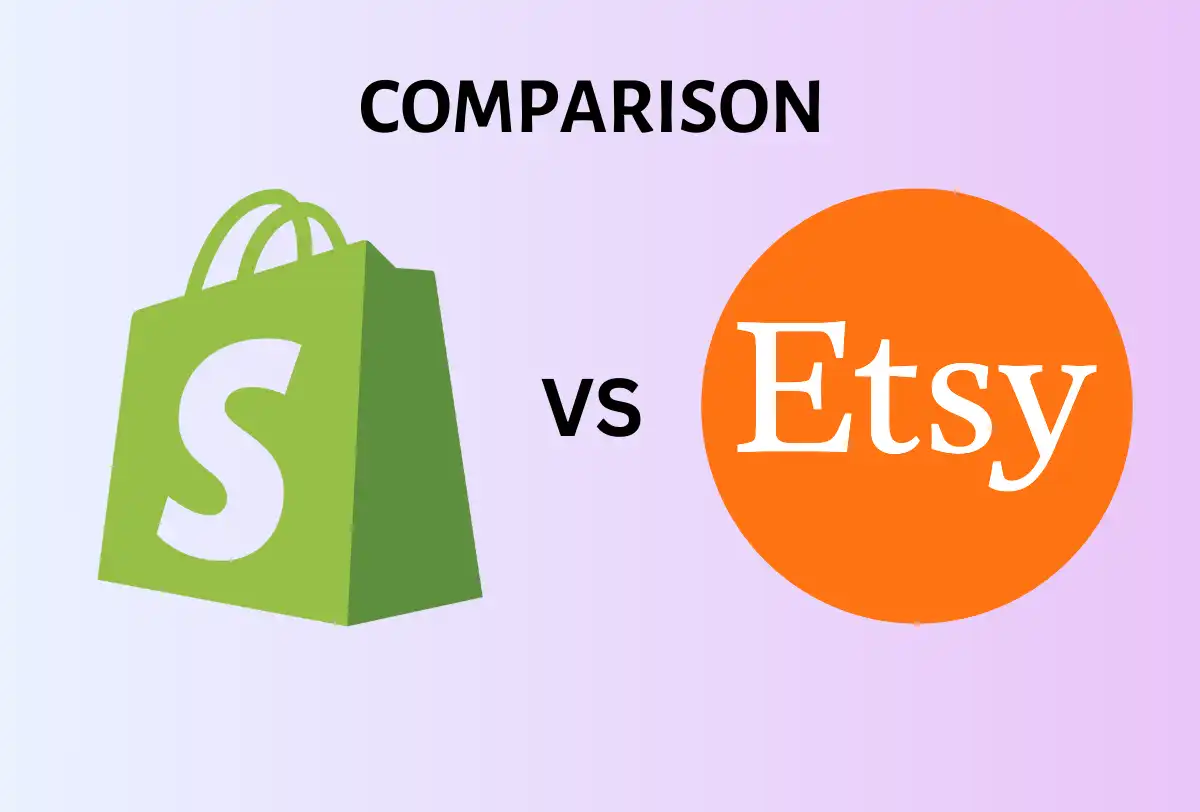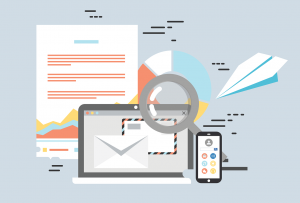When starting an online business today, it’s essential to compare platforms like Shopify and Etsy. Each serves different needs, so choosing the right one is key.
Shopify offers a customizable online store experience with tools for payments, marketing, and more. It’s suitable for businesses big or small, providing flexibility and scalability.
On the other hand, Etsy functions more like a marketplace for unique, handmade, or vintage items. It fosters a creative community of sellers, offering a distinct atmosphere for niche products.
The decision between Shopify and Etsy can significantly impact how your business thrives. By understanding their contrasts, entrepreneurs can make informed choices that align with their business vision and product offerings.
In the fast-paced world of online commerce, making the right platform choice ensures your business stands out and succeeds in meeting customer needs.
Your business, your web application
Custom-built for success
What is Shopify?
Shopify is an online platform that helps businesses set up and manage their own e-commerce stores. It offers a range of features to make selling online easier, including customizable website templates, secure payment processing, and tools for managing inventory and orders. One of its key strengths is scalability, meaning it can grow with your business as you expand. Plus, Shopify provides extensive customization options, allowing you to tailor your online store to match your brand’s unique style and needs.
It’s suitable for businesses of all sizes, from small startups to large enterprises, and caters to various industries, including retail, fashion, electronics, and more. Whether you’re selling physical products, digital downloads, or services, Shopify provides the tools and support you need to succeed in the competitive world of e-commerce.
How Does Shopify Work?
Shopify simplifies the process of running an online store with its user-friendly approach. At its core is a unified dashboard where users can manage all aspects of their e-commerce operations, from inventory and orders to marketing and customer engagement. It streamlines the entire process, making it easy for entrepreneurs to focus on growing their businesses.
Moreover, Shopify offers seamless integration with multiple sales channels, including websites, marketplaces like Etsy or Amazon, and social media platforms such as Facebook and Instagram. This enables businesses to reach customers wherever they are online, maximizing their visibility and sales potential.
One of the standout features of Shopify is its hosted, cloud-based platform, which allows users to manage their stores remotely from anywhere with an internet connection. This flexibility is particularly beneficial for entrepreneurs who need to juggle multiple responsibilities or work on the go. Overall, Shopify’s intuitive interface and extensive features make it a top choice for online retailers looking to succeed in the competitive e-commerce landscape.
What is Etsy?
Etsy is an online marketplace that brings together artisans, entrepreneurs, and collectors from around the world. It’s like a digital haven for anyone looking to buy or sell handmade, unique, or specialized goods. From handcrafted jewelry and vintage clothing to custom artwork and home decor, Etsy offers a diverse range of products you won’t find anywhere else.
With millions of active shoppers and merchants, Etsy has become a thriving community where creativity flourishes. Sellers can showcase their craftsmanship and connect with buyers who appreciate their work, while shoppers can discover one-of-a-kind treasures that reflect their individual style and personality.
Whether you’re a talented artist looking to share your creations with the world or a savvy shopper on the hunt for something truly special, Etsy provides a vibrant marketplace where creativity knows no bounds.
How Does Etsy Work?
Setting up a shop on Etsy is simple and straightforward. First, you’ll need to create an account, then follow a few easy steps to set up your shop profile. This involves adding a shop name, description, and banner to showcase your brand. Once your shop is set up, you can start uploading your products. Just take some great photos, write engaging descriptions, and set your prices.
Etsy provides various tools to help sellers manage their listings, including options for customizing shipping and payment preferences. When a customer makes a purchase, you’ll receive a notification, and you can then ship the item directly to them. Etsy also offers seller analytics and promotional tools to help you grow your business.
Overall, Etsy provides a user-friendly platform for artisans and entrepreneurs to showcase their products and connect with buyers worldwide.
Shopify vs Etsy: Key Differences

When it comes to Shopify vs. Etsy, there are some key differences worth noting. First off, let’s talk pricing: Shopify offers various subscription plans with monthly fees, while Etsy charges transaction fees and listing fees for each item sold. This means your cost structure will vary depending on which platform you choose.
Next, let’s look at marketing control and audience ownership. With Shopify, you have more control over your marketing efforts and own your customer data, allowing for targeted campaigns and personalized outreach. On the other hand, Etsy has built-in traffic and a loyal customer base, but you have less control over marketing and don’t fully own your customer relationships.
Ultimately, the choice between Shopify and Etsy depends on your business needs, budget, and marketing preferences. Both platforms offer unique benefits, so it’s essential to weigh the pros and cons before making a decision.
1) Market Segmentation and Client Outreach
When it comes to market segmentation and client outreach, both Shopify and Etsy offer distinct approaches.
Shopify provides a range of marketing tools, such as Collabs and Audience Lists, which allow businesses to segment their customer base and target specific groups with tailored promotions or content. Collabs facilitate partnerships with influencers or other businesses to reach new audiences, while Audience Lists enable precise targeting based on customer behavior or demographics.
Etsy, on the other hand, operates on a marketplace model, granting sellers access to a vast audience of shoppers already browsing the platform for unique and handmade goods. While Etsy sellers benefit from built-in traffic and exposure, they have limited control over marketing and customer data compared to Shopify users.
In terms of audience reach and targeting capabilities, Shopify’s tools offer more flexibility and control for businesses to reach their desired audience, while Etsy’s marketplace model provides broader exposure to a diverse pool of shoppers. Ultimately, the choice depends on the specific marketing strategy and goals of the business.
2) Scaling
When it comes to scaling your business, Shopify and Etsy offer different avenues for growth.
Shopify provides robust scalability options, allowing businesses to expand their operations seamlessly as they grow. With customizable storefronts, integrated payment processing, and access to a wide range of apps and plugins, Shopify offers the flexibility to adapt to changing needs and scale efficiently. This makes it an ideal platform for businesses aiming to establish themselves as well-known brands, with the ability to create a unique and professional online presence.
In contrast, Etsy’s marketplace model has limitations when it comes to brand building. While it provides exposure to a large audience of shoppers, sellers operate within the Etsy ecosystem and may struggle to stand out as distinct brands. Additionally, Etsy’s branding guidelines and reliance on the platform for visibility can hinder sellers’ efforts to build their own brand identity and recognition.
Overall, Shopify offers greater advantages for businesses looking to scale and establish themselves as recognized brands, thanks to its customizable features and independent storefronts.
3) Infinite Merchandise and Personalization Choices
When it comes to offering infinite merchandise and personalization choices, both Shopify and Etsy provide unique approaches tailored to the needs of businesses.
Shopify boasts extensive product listing capabilities, allowing businesses to showcase an unlimited range of merchandise with detailed descriptions, images, and variations. Its user-friendly interface makes it easy to manage inventory and update product listings as needed. Additionally, Shopify offers a plethora of design options, including customizable themes and templates, empowering businesses to create a unique and branded online presence that reflects their identity and values.
On the other hand, Etsy emphasizes uniqueness and product differentiation, catering to shoppers looking for one-of-a-kind items. Sellers on Etsy can leverage the platform’s marketplace model to showcase their handmade, vintage, or personalized products to a global audience of discerning buyers. This emphasis on individuality and craftsmanship sets Etsy apart as a destination for unique and personalized merchandise, fostering a vibrant community of creative entrepreneurs and shoppers alike.
4) E-Commerce Capabilities
When delving into e-commerce capabilities, Shopify and Etsy offer distinctive features tailored to online businesses.
Shopify’s strength lies in its expansive App Store, providing a plethora of e-commerce solutions to enhance and streamline various aspects of online selling. From inventory management and customer service tools to advanced analytics and marketing integrations, Shopify’s ecosystem empowers businesses to build and customize their online stores according to their specific needs and goals.
In comparison, Etsy offers a more curated experience with a focus on its marketplace model. While Etsy provides basic email functionality for communication with buyers and sellers, its marketing tools are more limited compared to Shopify’s robust suite of features. Etsy sellers rely on the platform’s built-in traffic and community engagement to drive sales, with less emphasis on advanced marketing strategies.
Overall, the difference in e-commerce capabilities between Shopify and Etsy lies in their approach: Shopify prioritizes flexibility and customization through its extensive App Store, while Etsy fosters a sense of community and discovery within its curated marketplace.
Is Shopify Better Than Etsy?

Determining whether Shopify or Etsy is better depends on various factors, including business size, product offerings, and marketing strategies.
Shopify is advantageous for businesses looking for customization, branding control, and scalability. With Shopify, businesses can create fully branded online stores, access a wide range of customizable features, and scale their operations efficiently. This makes it ideal for established businesses aiming to expand their online presence and build a recognizable brand.
On the other hand, Etsy is suitable for individuals and small businesses seeking community engagement and niche markets. Etsy’s marketplace model provides built-in traffic and exposure, making it easier for sellers to reach a global audience of shoppers interested in unique and handmade products. Additionally, Etsy fosters a sense of community among sellers and buyers, offering opportunities for networking and collaboration.
Ultimately, the choice between Shopify and Etsy depends on the specific needs and goals of the business. Shopify offers greater flexibility and scalability for businesses looking to establish their own branded storefronts, while Etsy provides a platform for individuals and small businesses to connect with a niche audience and community.
Conclusion
Choosing between Shopify and Etsy for e-commerce businesses boils down to understanding your specific needs, goals, and target audience. If you prioritize customization, branding control, and scalability, Shopify emerges as the preferred choice. Its robust platform offers extensive customization options and scalability for businesses aiming to establish a distinct online presence and expand their operations.
On the other hand, Etsy caters well to individuals and small businesses seeking community engagement and niche markets. Its marketplace model provides built-in traffic and exposure, making it easier to reach a global audience interested in unique and handmade products.
Ultimately, the decision should align with your business goals and objectives. Consider factors such as your product offerings, marketing strategies, budget, and long-term growth plans when making your choice. By aligning your platform choice with your business goals, you can set yourself up for success in the competitive world of e-commerce.
FAQs (Frequently Asked Questions)
What type of businesses are better suited for Shopify vs. Etsy?
This FAQ addresses the suitability of each platform for different business types, helping readers understand which platform aligns best with their specific needs and goals.
What are the main differences in pricing between Shopify and Etsy?
Here, readers can find information about the pricing structures of both platforms, including subscription plans, transaction fees, and listing fees, aiding in budgeting and cost analysis for their online ventures.
How does marketing differ between Shopify and Etsy?
This FAQ explores the marketing tools and capabilities of each platform, providing insights into how businesses can promote their products and reach their target audience effectively.
Can I switch between Shopify and Etsy if my business needs change?
Readers seeking flexibility in their platform choice may have questions about migrating between Shopify and Etsy. This FAQ addresses concerns about switching platforms and offers guidance on the process.



